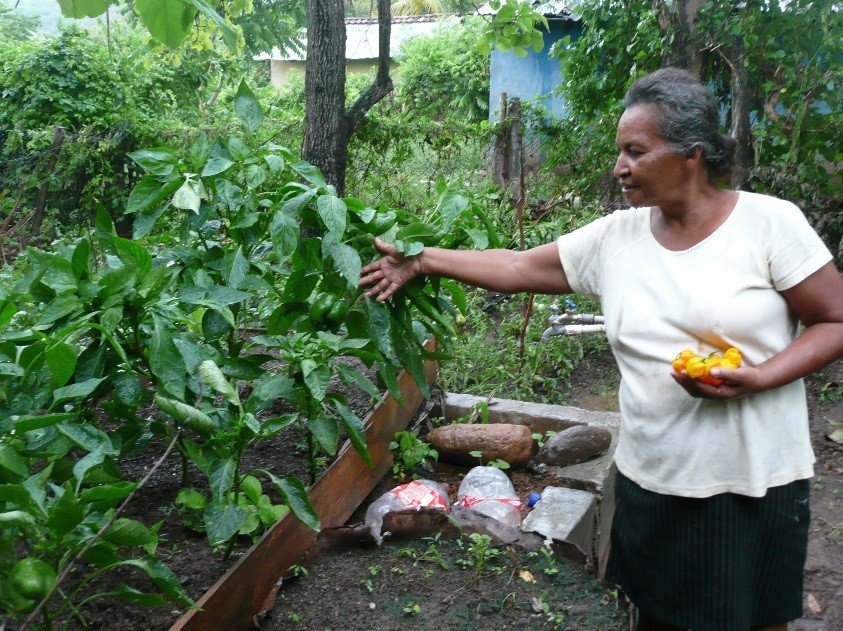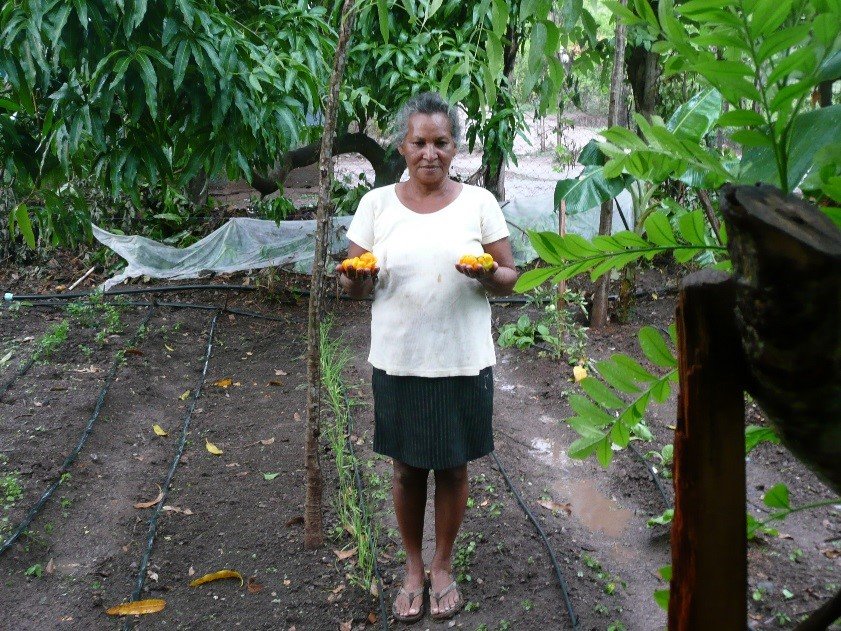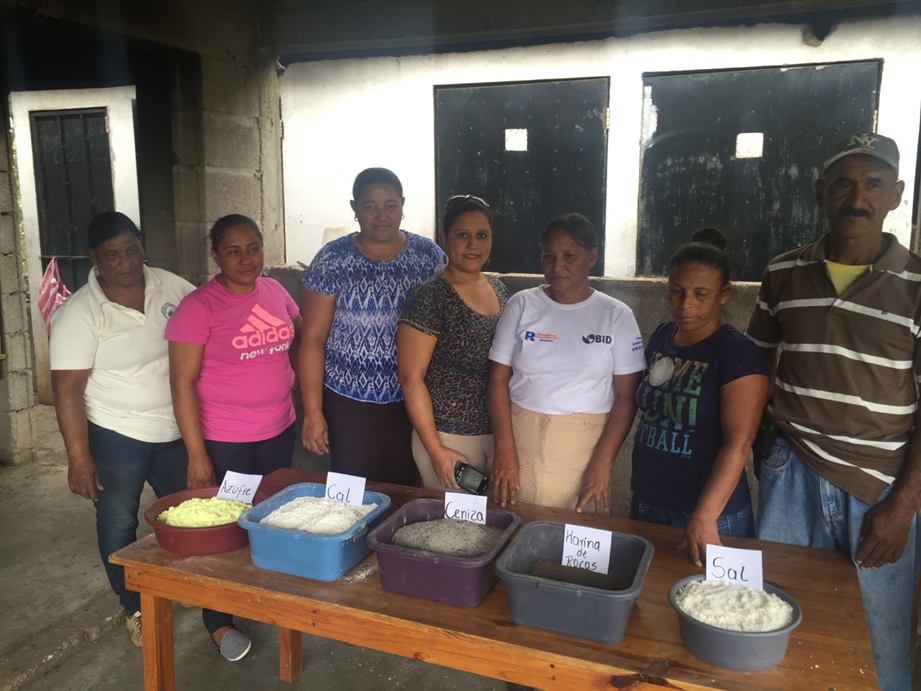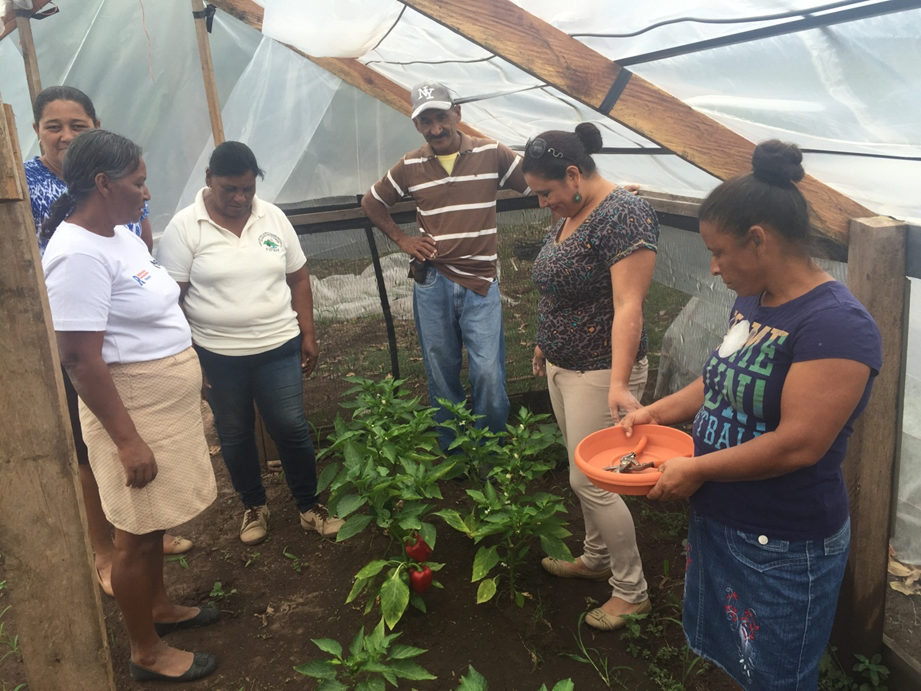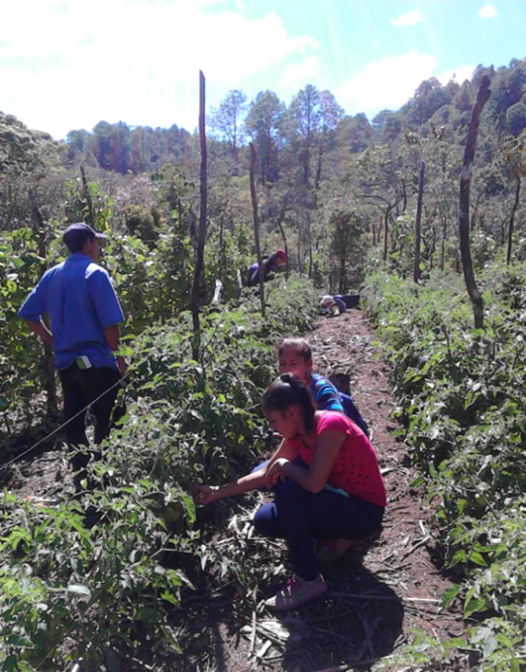By Gregory Bonin | Seed Programs International
Our best hope for any project is that we will work ourselves out of a job. When farmers acquire the skills they need to grow food, save seeds, and foster mutually beneficial relationships with neighboring communities, they lay a foundation for self-sufficiency that will last for generations to come.
So, we are happy to say that this is our final report for Seeds to Grow 100 Tons of Needed Food in Honduras. Together with our primary partner, FIPAH, we have supported five Honduran communities in coming together to develop and adopt adaptable solutions. Thanks to the farmer schools and research teams (CIALs), farmers are empowered to respond to a changing environment and local economy. By including all members of the community, including women and youth, they have ensured that a broad pool of farmers have the knowledge needed for long-term resilience. continue the best practices developed by FIPAH’s research teams (CIALs).
"Before, women didn't have any say in agriculture. Now they're active in many projects," said Hilda, CIAL's Women in Action coordinator and treasurer. "Now we have a say in what goes on in our farming communities. The men received us well. Women are good farmers because we are motivated and hard-working and organized. We are leaders."
While we initially shipped seeds to Honduras, it later made more sense to purchase seeds locally to better adapt seed-saving techniques for each region. Sally from FIPAH writes, “The project flows from a successful seed field school piloted in Jesus de Otoro in 2015 supported by SPI. As per the original planning, each of the five regions where FIPAH operates is focused on producing specific seed varieties through field school training.” Below, you can see the seeds that each region chose to refine along with the breakdown of farmers who are now trained in seed production.
Intibucá Sur: Tomato, Chile, Green Bean, Cucumber, Pepino
12 Farmers: 5 Women and 7 Men
Lempira Sur: Broccoli, Cauliflower Onion
11 Farmers: 5 Women and 6 Men
Otoro: Soybean, Coriander, Radish
10 Farmers: 9 Women and 1 Man
Yorito: Chile, Tomato
10 Farmers: 9 Women and 1 Man
Vallecillo: Onion, Cabbage
13 Farmers: 2 Women and 11 Men
The CIALs currently have 56 participants engaged in seed production enterprises — 30 women and 26 men from 21 communities over five regions. Our most recent field report focuses on the Jesus de Otoro region.
Dona Bertulia
Dona Bertulia is from the community of Las Pilas in the municipality of Sulaco. Her small huerto (orchard) is right beside her house on the road that runs through the centre of Las Pilas. Neighbors can peer over her fence to see what she is growing. She has a wide range of vegetables and herbs, which she waters with simple drip irrigation.
As a long time seed saver, she was selected by FIPAH for seed saving training in tomato and chile. Given the difficulties that farmers face working with these two species, she was eager to learn new information about plant diseases, how to select plants that could be used to save seed, and some farming “best practices” for these particular plants.
During the training, Dona Bertulia learned how to save seed that could be sold, an idea that was new to her. There are a lot of women in Las Pilas interested in growing vegetables, but they don’t have access to good seed. She is now planning on selling tomato and chile seed to neighbours in addition to the vegetable harvest she usually offers. The seed will be sold in small paper packets that have been produced at FIPAH’s Yorito office. Producing seed not only opens the door for women to earn an income, but importantly, it can be done from home. Women, most with children and older relatives to care for, can engage in saving seed without leaving their homes. And the neighbors will benefit from having access to seed which they can use in their own huertos to produce healthy food to nourish their families.
In Closing
With your help, we recently supported the acquisition of over 62,000 packets of seed. FIPAH reports that our partnership has benefited 100 communities in five regions where 829 families and 270 schoolchildren from grades 4 - 6. Six school gardens have been established where students share the responsibility of managing the garden with their parents. These gardens contribute healthy vegetables to the school’s lunch menu and will also provide plants that will be saved for seed. This is just one fantastic example of how the community has come together to create spaces for multi-generational collaboration.
Seed production is the final stage of our involvement with this program. Having an exit strategy and supporting work toward that end is a core component of our model. Now that a strong, community-led network is in place for these Honduran farmers, our role in supporting this project has concluded.
We are so grateful for your generous support of this project! We hope you will consider supporting one of our other projects and reading more about our work at www.seedprograms.org.
Thank you!
By Greg Bonin | Seed Programs International
By Gregory Bonin | Operations & Communications Director
Project reports on GlobalGiving are posted directly to globalgiving.org by Project Leaders as they are completed, generally every 3-4 months. To protect the integrity of these documents, GlobalGiving does not alter them; therefore you may find some language or formatting issues.
If you donate to this project or have donated to this project, you can recieve an email when this project posts a report. You can also subscribe for reports without donating.
